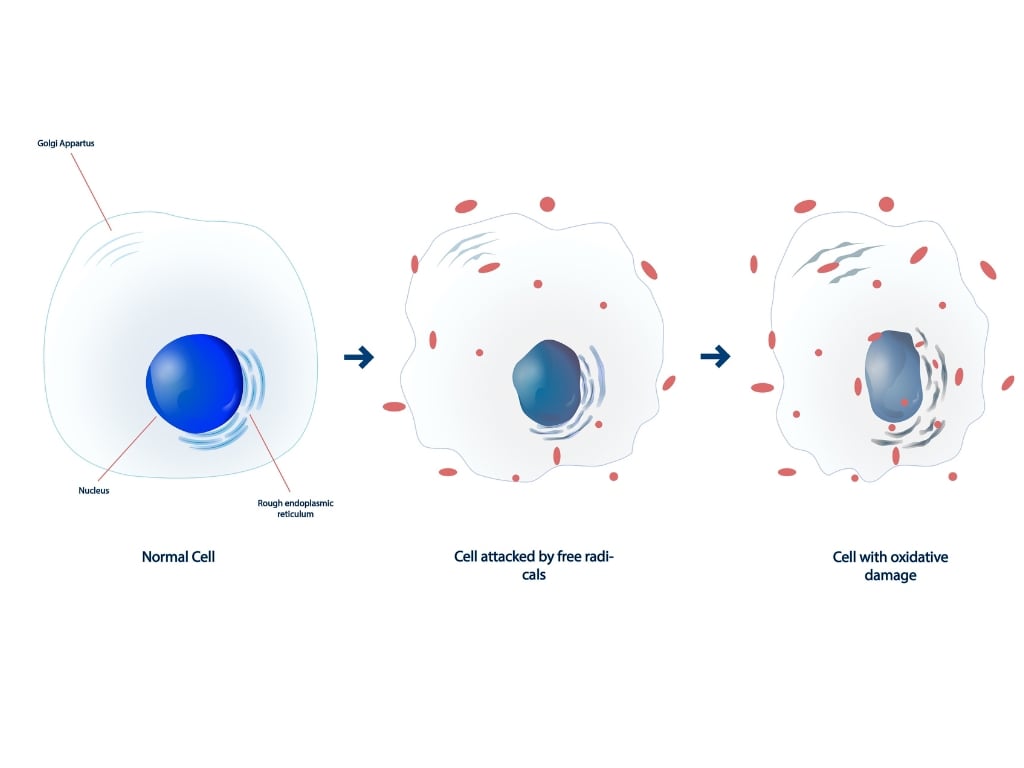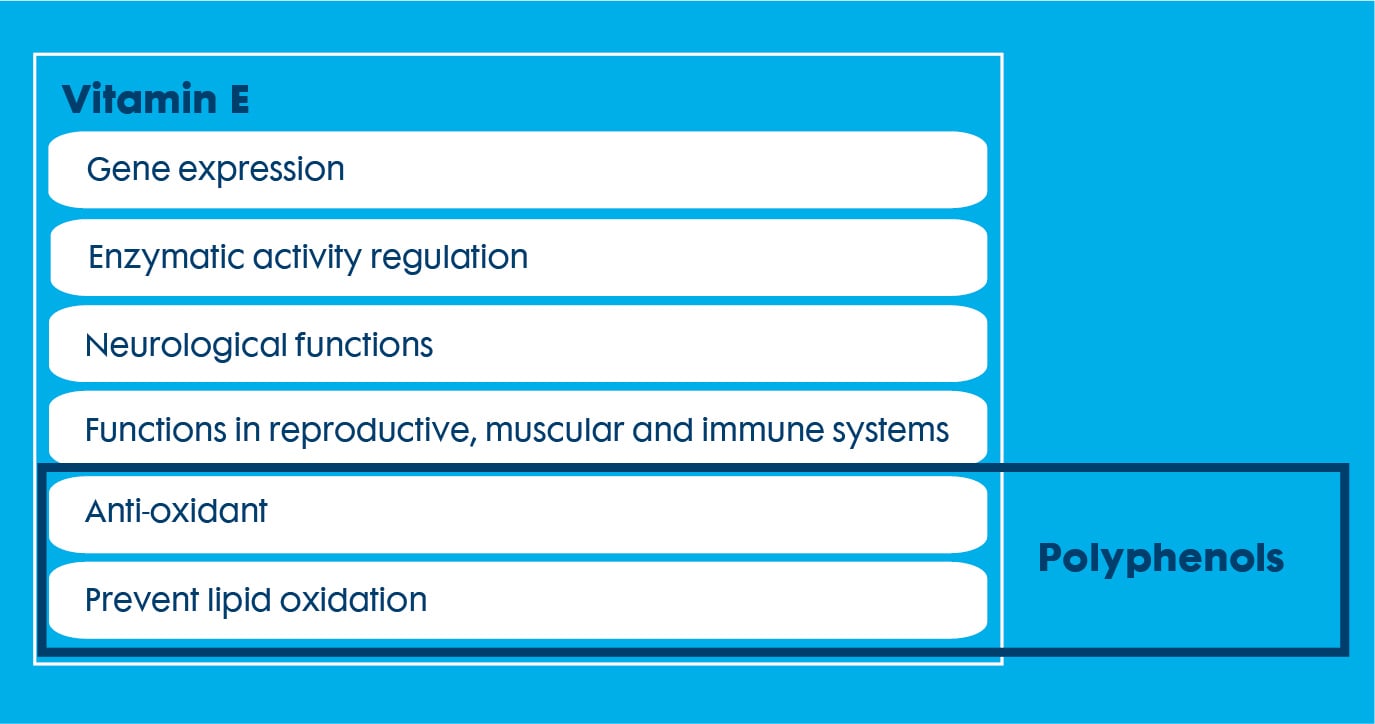Selko AOmix
A cost-effective solution to partially replace vitamin E
Benefits
- Protects your animals against oxidative stress
- Supports performance
- Supports the immune system
Specifications
- Species specific blends
- High bioavailability
- Remains stable in premix and feed
Species specific solutions
-
Ruminants
-
Monogastric
Tailor-made for ruminants
In ruminants, bioavailability is directly proportional to three factors:
- Polyphenol susceptibility to fermentation in the rumen
- The type of fermentation products produced
- The bioavailability of bypass polyphenols or polyphenol fermentation products.
Citrus, for example, contains naringenin, which can skip rumen fermentation and has a high bioavailability in the small intestine. Conversely, proanthocyanidins are too big to digest in the small intestine and must be fermented to produce absorbable antioxidants. Bio-efficacy is affected by both the substrate and the fermentation conditions.
Selko AOmix R is specifically designed for ruminant species. It contains mainly condensed tannins and utilises grapeseed, which is bioavailable due to rumen fermentation.
Tailor-made for monogastric species
To ensure a high level of antioxidant defence in monogastric animals, particularly those who are fast-growing or have health issues, it is critical to combine a variety of antioxidants that function synergistically and complement one another.
Polyphenols for monogastric species must be chosen according to their digestibility and intestine absorption. According to studies, quercetin, rosemarinic acid and resveratrol are highly bioavailable.
In contrast, grape-based proanthocyanidins produce almost no useful antioxidants in monogastric species. Together with the low bioavailability of grape polyphenols and proanthocyanidins in poultry, these antioxidants are better suited as an alternative to vitamin C as they are water soluble antioxidants. Therefore, Grape polyphenols should rather be viewed as complementary to vitamin E and not as a replacement for vitamin E. This is because only fat-soluble antioxidants can prevent lipid oxidation.
Selko AOmix M is specifically designed for monogastric species and contains complex flavonoids and hydrolysable tannins.
Oxidative stress explained


Vitamin E: a vital part of the diet
Vitamin E serves two main functions in animals, as described in literature: regulating gene expression, enzymatic activity and neurological functions; and serving as an antioxidant. Gene regulation is specific for vitamin E and cannot be replaced by other compounds. However, vitamin E is not unique in its ability to neutralize free radicals. Alternative products can serve as effective antioxidants at a lower price point compared to vitamin E.
Vitamin E is part of a family of antioxidant compounds called polyphenols. Specific polyphenols can be more efficient than vitamin E in reducing oxidative pressure. Within this diverse category, some molecules have more antioxidant capacity per gram than vitamin E, especially when considering the synthetic vitamin E used in livestock feed. Furthermore, some polyphenols offer improved bioavailability. Thus, the enhanced activity and availability of some polyphenols produce a more effective antioxidant supply in livestock than vitamin E alone.
Poliphenols can partially replace vitamin E
Polyphenols are a class of plant chemicals with antioxidant properties. These molecules' basic structure includes a phenol group, which is related to vitamin E. Polyphenols' antioxidant potential has long been recognised, and over a century ago, they were close to being classified as vitamins due to the antioxidant protection they provide.
Some polyphenols have more hydroxy groups bonded to benzene rings per unit weight than vitamin E, giving them even more antioxidant activity. However, not all polyphenols can be used as a direct replacement for vitamin E's antioxidant effect. Bioavailability, radical affinity, tissue dispersion, and metabolism must all be considered.

Get in touch about Selko AOmix
Interested to learn more about the possibilities of incorporating Selko AOmix in your animal diets? Fill out the contact form below and we will reach out to you for further support.
